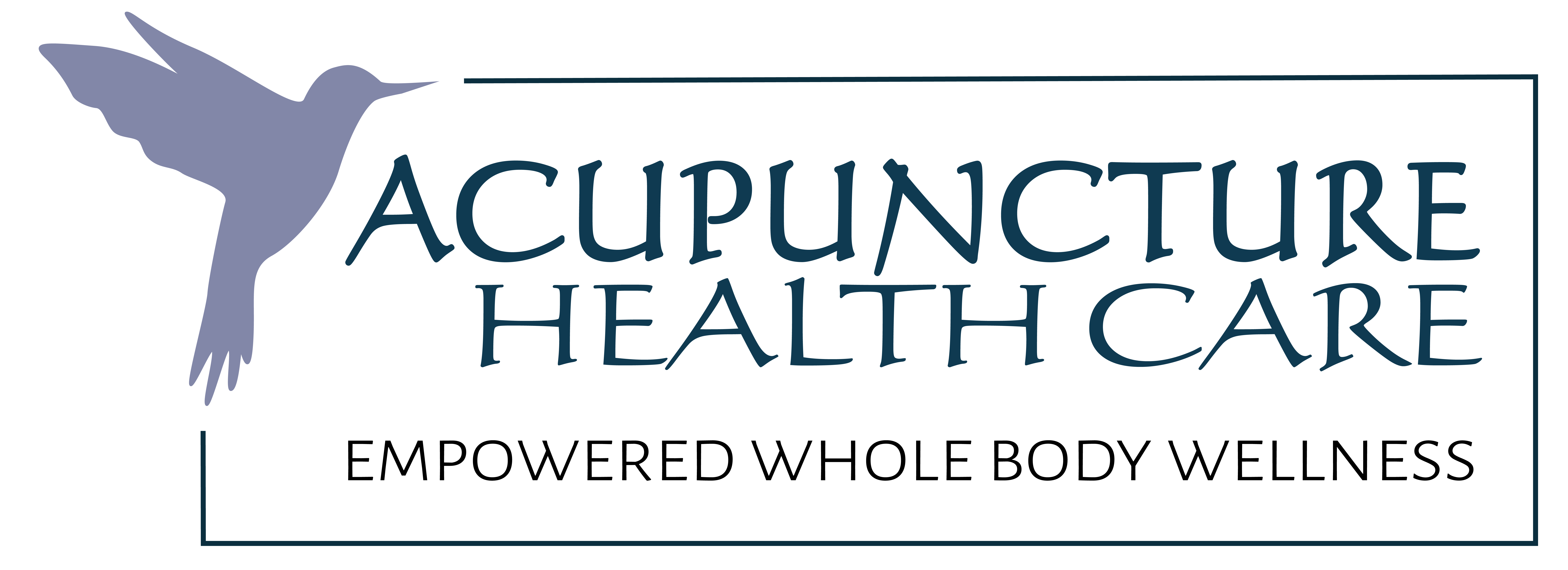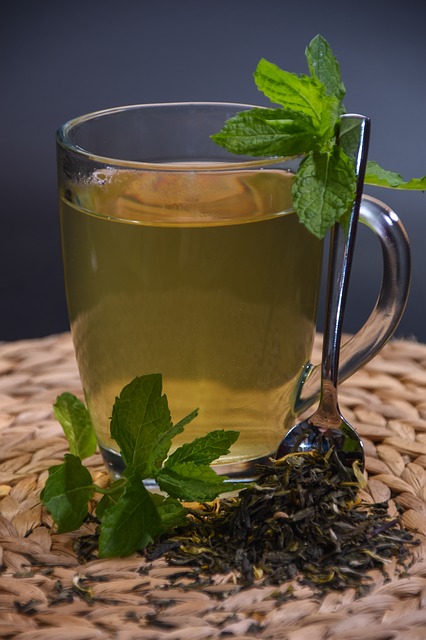-
 Acupuncture Health Care10 Circle Drive
Acupuncture Health Care10 Circle Drive
North Liberty, IA 52317206-303-9777 Hours
Mon12p - 6pTue9:30a - 5:30pWedClosedThu9:30a - 5:30pFri12p - 6pSatBy ApptSunClosed
Follow Us!
-
-
Latest Articles:
- • The Best Ways to Protect Your Skin from the Sun This Summer •
- • Savoring Summer with Recipes Using the Best Summer Ingredients •
- • Top 5 Best Staycation Ideas for Summer •
Health WellNews
Five Acupuncture Points for Winter
Winter is a word that conjures up many different images, including snowmen, sleigh rides and holidays. During the winter months, nature is resting and replenishing itself for the upcoming spring. And as we are part of nature, we should also be focusing on rest and relaxation.

Traditional Chinese Medicine (TCM) teaches that we should live in harmony with the seasons. When we don’t, that’s when disease and illness occur. Living in harmony with the season of winter means we should avoid eating excessively cold or raw foods, we should focus our attention inward and we should make time to relax and rejuvenate our bodies.
Winter is associated with the element of water, the kidneys and the urinary bladder. The kidney energetic pathway opens to the ears and therefore, they should be protected from the cold that occurs during the winter months. Every major organ in the body is also assigned an energetic pathway in TCM theory. These pathways allow energy or Qi (pronounced “chee”) to flow throughout the body, which keeps everything functioning properly. When the Qi becomes deficient, stagnant or blocked, then disease can develop. During the season of winter, this may manifest as ear aches, low back pain, knee pain, urinary issues, anxiety or fatigue.
To keep the kidney and urinary bladder functioning properly within the TCM system, things like acupuncture, herbal formulas, nutritional counseling and practices like qi gong or tai chi may need to be incorporated. There are over 350 acupuncture points on the body, but there are some that work exceptionally well during the winter season to help keep the body free from disease.
KIDNEY 3 – This point is located bilaterally on the inner lower leg, in the depression just behind the medial malleolus. Kidney 3 is a very important point that can help with everything from low back pain to ear aches.
SPLEEN 6 – This point is located bilaterally on the inner lower leg, about three thumb-breadths above the inner malleolus. Spleen 6 can help improve immune system function and fight fatigue.
LIVER 3 – This point is located bilaterally on the top of the foot, in the depression about one thumb-breadth from the edge of the webbing between the first and second toes. This point can be used to decrease headaches and help with some urinary issues.
STOMACH 36 – Located bilaterally on the outer lower leg, it can be found one finger-breadth from the border of the upper tibia and about three thumb-breadths below the lower border of the knee cap. Stomach 36 is known as the longevity point in TCM and is frequently used by practitioners. It can help with fatigue, dizziness and knee pain.
URINARY BLADDER 23 – Located bilaterally, on either side of the spine, it can be found one and a half thumb-breadths from the lower border of the second lumbar vertebra. Urinary Bladder 23 is another frequently used point that helps with deafness, dizziness, knee pain, low back pain and urinary issues.
Any of these points can be used alone or in conjunction with others. They can be manually stimulated using pressure from a finger or dull, rounded tool. But for best effects, it is recommended acupuncture be applied.
Fight Holiday Stress with Acupuncture
The holidays are supposed to be a time of joy, celebration and love. But for many, the holidays mean added stress, anxiety and lack of sleep. Some polls show Americans spend an average of 42 hours annually on holiday activities. This could be anything from shopping to traveling to preparing food. And all of that adds up to extra stress that deteriorates the body and mind. Mental and physical stress then translates into oxidative stress at the cellular level. Oxidative stress, over time, can actually lead to disease.

The good news is there are many ways to deal with and handle added holiday stress. One of these ways is through the use of Traditional Chinese Medicine (TCM). This medical system has been around for nearly 3,500 years and can greatly improve our quality of life. TCM is a holistic and natural way to combat anxiety and stress. Acupuncture is one of the modalities this medical system utilizes. Acupuncture has the ability to induce deep relaxation throughout the mind, body and soul. In fact, many people report falling asleep during their acupuncture treatments.
Numerous studies have been done to show how acupuncture can decrease stress. A study at Yale University showed auricular, or ear acupuncture, significantly lowered stress levels in mothers whose children were undergoing surgery. Multiple studies also confirm acupuncture can lower both systolic and diastolic blood pressure readings. And blood pressure is one of the first physical signs a person is stressed out.
In TCM, each season is associated with an element. Winter is associated with the element of water. Starting every day during the holidays/winter season with a large glass of room temperature water can not only keep the body hydrated, but it can also prevent added stress at the cellular level. From a metaphorical stance, water is calming to the mind and body. So when we feel that twinge of anxiety coming on, visualizing water, like an ocean or a lake, can actually help decrease the stress levels.
As mentioned above, chronic stress can lead to oxidative stress at the cellular level. Chronic pain sufferers can attest to how stress affects their bodies. For many people who deal with diseases like fibromyalgia, the excess stress around the holidays can actually increase the amount of pain in the body. Regular acupuncture treatments, even during the holidays can be very beneficial for those who have chronic health and pain issues. Acupuncture can reduce inflammation and relieve pain in as few as one to two treatments.
Another helpful tip to deal with holiday stress, is to get out in nature. Yes, it can be cold during the holiday season. However, studies show spending even as little as five minutes outside among nature can lower blood pressure and decrease stress. And what better way to admire the beautiful lights and decorations that frequent so many neighborhoods during this time of year, than to step outside for a breath of fresh air or a quick walk around the block?
Acupuncture is also a wonderful tool to combat Acupuncture is also a wonderful tool to combat insomnia that can frequently wreak havoc around the holidays. Traveling, packing and multiple holiday events can really interfere with getting a good night’s sleep. Acupuncture can definitely help with that. Because it is so relaxing, many people take healing power naps when they are receiving their acupuncture treatments.
Before the holiday season kicks in, contact a locally licensed acupuncturist to discuss how they can help you deal with stress and anxiety. You’ll be glad you did.
Acupuncture and the Season of Winter
Winter is just one of the five seasons acknowledged by Traditional Chinese Medicine. The ancient Chinese followed the belief humans should live in harmony with the cycles of nature. During the winter months, the darkness and cold indicate we should slow down, take care of our health, conserve our strength and replenish our energy for the upcoming spring and summer months. This is observed in the animal kingdom and it should also be considered a good rule of thumb for human beings.

Each season has multiple associations that help us adjust our habits as things change, which makes it easier to keep the body and mind balanced. Winter is ruled by the water element. The water element is associated with the kidneys and urinary bladder. According to TCM philosophy, the kidneys are the source of all energy found within the body. This energy, frequently called Qi (pronounced “chee”), is what keeps us alive and allows our bodies to function properly. During the winter months, it is vital that we nourish and nurture our kidney Qi.
Winter is typically a time when we decrease our daily activities. Because of this, we should also decrease the amount of food we eat to avoid gaining excess weight. It is also recommended excessively cold and raw foods be avoided or at least countered with things like hot tea. Cold and raw foods can deplete the Qii over time. This can lead to problems with digestion, sleep and much more.
It is suggested during the winter months, we should emphasize foods warming to the body. This includes things like soups, stews, root vegetables, beans, garlic and ginger. Also foods like whole grains and roasted nuts can help keep the body’s core warm, while providing healthy nourishment.
Aside from eating according to the seasons, there are also other things we can do to keep ourselves in tune with our environment, which will ultimately keep us healthy. TCM is a non-invasive way to build the Qi and keep the body functioning properly throughout the winter, as well as the other seasons.
TCM incorporates quite a few different modalities. Acupuncture is probably the most commonly known of these modalities and it is a wonderful tool for boosting and replenishing kidney Qi. Moxibustion is another TCM modality that involves burning crushed mugwort on acupressure points to help increase the core body temperature and keep blood circulating throughout all parts of the body.
There is also another form of Qi known as Wei Qi (pronounced “way chee”) that is frequently compared to our immune system. Regular acupuncture treatments, proper sleep, a healthy diet and exercise are all ways to keep the Wei Qi strong.
One of the most important things anybody can do during the winter months to stay healthy is drink plenty of water. Winter, in most places, literally drains the moisture out of the body. It is recommended that we drink at least 64 ounces of water per day, even during the winter months. However, the thought of drinking cold water in cold weather is a concept that tends to keep a lot of people clinically dehydrated during the winter months. This is why warm water with lemon or hot tea are good substitutes. We are still ingesting water, while avoiding the cold that could potentially damage our core.
By following the guidelines set forth by nature, we can also remain in balance with the natural world around us. This is how our ancestors did it and it served them quite well. Perhaps there is something to be learned from the wisdom our elders pass down through the generations, aside from just some intriguing tales.
Traditional Chinese Medicine And Fall
As the seasons shift from summer to fall, so does the Qi (or energy) in the universe as well as within our bodies. Autumn is represented by the metal element, which includes the lung and large intestine meridians. The emotion often associated with the lung meridian is sadness and grief. This is the time of year to let go, to finish projects which you have not yet completed and embrace the coming of a new season.

One easy way to benefit the lung organ is breathing exercises. Practice breathing in through your nose and focus on filling your lungs deep with your breath, down into your abdomen. Hold that breath for a count of five and slowly exhale out of your mouth trying to get all of your breath exhaled from the very bottom of the lungs. You can repeat this several times as well as a few times throughout the day. Not only will this help build your lung Qi, it will also relax and center you. This is important in the midsts of our busy lives. Good sleep habits are also essential for health, wellbeing as well as the lung’s Qi. Early to bed and early to rise will help invigorate you and set each day off full steam ahead.
In summertime many people indulge in lots of raw and fresh fruits and vegetables. For our bodies, digesting these raw foods can use up a lot of our Qi, but in the summer the heat of the summer can balance some of this as the raw foods have a more cooling aspect to them. As we transition to autumn, it is also a time to transition our diet and move towards more warming foods. Soups, stews, warm beverages, cooked fruits and vegetables. Fall can be abundant with amazing fresh produce that is seasonally appropriate– pears, garlic, leeks, beans, apples, onions, ginger and leafy greens.
The lungs are also integral for our Wei Qi, which is our protective Qi, akin to the immune system. As the lungs are connected to the nose and the mouth, it is important to be mindful of this. Using a neti pot can help rinse out the nasal and sinus passages. Using a warm salt water mixture will help reduce your chances of colds and allergies. As the temperature shifts, so should our attire. Keep your body warm and appropriately covered, including a scarf around the neck as needed. It is a great time of year to go for long walks and hikes in nature, but keep yourself well prepared to keep your body strong.
The Metal Element
Traditional Chinese Medicine dates back thousands of years and has helped people all over the world remain and regain health and well-being. Traditional Chinese Medicine, or TCM, most likely predates written history. But the first writings of this medical system appear in China during the Shang Dynasty in 1766 B.C. The theory behind TCM however, is not just Chinese in origin and is heavily rooted in traditional Eastern philosophy. The concept of the five elements that are now used in TCM probably began with the ancient Chinese calendar where five types of energies were assigned to different days, months and years. These five elements were associated with the solstices and equinoxes in an effort to help farmers plan ahead. The five elements are wood, fire, earth, metal and water.

Metal is the element associated with the season of fall. The metal element is thought to be about connection and purity. During the autumn months, things are winding down and life is preparing for hibernation. Autumn is the time of year when we tend to let go of the things that no longer serve us. Just as the leaves fall from the trees in the autumn months, so too should we let go of the things, physical or mental, that bog us down. Fall is a good time to detox the body or clean out the closets of unwanted items.
Each element in TCM is also closely affiliated with two organs and their energetic meridians. Metal is the element of the lungs and the large intestine. The large intestine functions to “let go” of toxins and waste products our bodies no longer need to function. The lungs enable us to take in the crisp pure air of the autumn months, which helps to nourish and enrich our blood. The lungs and the large intestine work as a team to keep the body healthy. One gets rid of waste, while the other brings in nourishment.
When the metal element is out of balance, we may experience allergies, asthma, wheezing, colds, coughing, grief, sadness, skin rashes, eczema, diarrhea or constipation. All of these can be due to either excesses or deficiencies within the lung and large intestine meridians. One way to counter a breakdown in the system is by eating foods color specific to the two energetic meridians. Things like onions, turnips, cauliflower, egg whites, apples, potatoes and pears are all good examples of white foods that can help boost or tonify the energy of the lung and large intestine meridians.
Deep breathing is also something that can be done daily to help keep the metal element balanced. This practice can help strengthen the lungs and boost immunity in the body. Deep breathing can be somewhat meditative, which can help calm the mind too. When practicing deep breathing, the focus should be on the abdomen. The abdomen should expand when inhaling and it should deflate when exhaling. This is somewhat opposite of what most people do when they breathe. But when watching an infant breathe, it is easy to see this pattern. Deep breathing can be done almost anywhere and it can help tremendously when there is added stress.
Lastly, consider getting acupuncture to balance out the metal element. Acupuncture has been shown to be effective at treating many lung and large intestinal issues. Acupuncture works with the body to balance energy, remove blockages and get things flowing properly throughout the whole system. A few treatments can bring relief from a lifetime of discomfort.
How to Fight the Common Cold with TCM
 Cold and flu season usually occurs during the winter months. But the common cold doesn’t follow a schedule. The common cold can happen at any time of the year. It affects nearly three million people in the United States every year. Symptoms can include a runny nose, sneezing, congestion, coughing, sinus pressure, watery eyes, fatigue and muscle aches. The common cold is usually caused by a virus and unfortunately, Western medicine has no real cure for this ailment.
Cold and flu season usually occurs during the winter months. But the common cold doesn’t follow a schedule. The common cold can happen at any time of the year. It affects nearly three million people in the United States every year. Symptoms can include a runny nose, sneezing, congestion, coughing, sinus pressure, watery eyes, fatigue and muscle aches. The common cold is usually caused by a virus and unfortunately, Western medicine has no real cure for this ailment.
Traditional Chinese Medicine (TCM) is a medical system that approaches Western ailments from a very different angle though. In TCM, wind is one of the six external pathogens that can invade the body and produce symptoms. The external pathogens responsible for the cold are seen as invasions of wind. The body is protected by something known as the Wei Qi (defensive qi, pronounced “way chee”). The Wei Qi is comparable to the immune system in Western medicine and it acts as the first line of defense when the body is under attack from external pathogens. If the Wei Qi is strong, the body is capable of fighting off the cold virus. The Wei Qi keeps the pores of the skin closed and prevents wind from entering. Extreme stress, lack of sleep and a poor diet can all play into how strong the body’s Wei Qi truly is and how well it performs.
Chinese botanical medications and certain TCM modalities like acupuncture, cupping and gua sha can all be utilized when the body breaks down and a wind pathogen invades. Chinese herbs have anti-viral and antibacterial properties that help ward off the pathogens. Some herbs also have diaphoretic properties, which induce sweating that expels the pathogens from the system. Wind can also carry other pathogens with it that can exacerbate the infection. So the cold can present as either a wind-cold or a wind-heat invasion. Obviously, these are treated differently based on the symptoms.
A wind-cold invasion tends to be the more mild of the two and can be treated with acupuncture, gua sha or cupping. This is considered the beginning stages of a cold as there are rarely any heat symptoms present. Because the pathogen is still mostly on the surface of the skin, gua sha or cupping may be the first line of defense. Both gua sha and cupping pull out toxins from the muscles and the blood and bring oxygen-rich blood into those areas decreasing the time that it takes for the body to heal. Acupuncture can also be a good tool to use when fighting a wind-cold attack. Acupuncture stimulates the immune system and helps to balance the hormones, which can shorten the length of time a person may feel ill. The other type of cold is the wind-heat invasion. Wind-heat invasions attack quickly and manifest just like wind-cold invasions, but they also have fevers as one of their primary symptoms. Wind-heat invasions should be treated with acupuncture and herbs only, as gua sha and cupping can sometimes push the pathogen deeper into the tissues extending the length of the cold.
With both types of colds, plenty of rest and water are essential. Mint and chrysanthemum teas are also highly recommended. Spicy, greasy or fried foods should be avoided, as should sugar because these foods can create mucus or exacerbate the condition. And regardless of the type of cold, a licensed acupuncturist will be able to help you kick it in less time than normal.
Acupuncture for Weight Loss
 An article published in the Journal of Acupuncture and Meridian Studies, substantiates the usage of acupuncture and traditional Chinese herbal formulations can help in the treatment of obesity and weight loss. The article reviewed four clinical studies and 16 animal studies on the effects of Traditional Chinese Medicine (TCM) for treating obesity. There were different methods, but the results were ultimately the same. Obesity can be a result of total body inflammation or hormonal imbalances, and because of this, all the studies that were reviewed, had different approaches for treating the disease. All of the studies confirmed obesity can be managed utilizing Traditional Chinese Medicine techniques.
An article published in the Journal of Acupuncture and Meridian Studies, substantiates the usage of acupuncture and traditional Chinese herbal formulations can help in the treatment of obesity and weight loss. The article reviewed four clinical studies and 16 animal studies on the effects of Traditional Chinese Medicine (TCM) for treating obesity. There were different methods, but the results were ultimately the same. Obesity can be a result of total body inflammation or hormonal imbalances, and because of this, all the studies that were reviewed, had different approaches for treating the disease. All of the studies confirmed obesity can be managed utilizing Traditional Chinese Medicine techniques.
Obesity has become an epidemic in the United States. As many as one quarter of all Americans are considered overweight. And because of this, nearly $33 billion will be spent annually on weight loss programs. However, almost 85 percent of those trying to lose weight, will fail. There are many reasons why Americans are getting larger waistlines, but ultimately, the burden falls upon the individual. There are methods that can help people lose pounds and maintain a healthy weight though.
TCM is a non-invasive, safe and effective method for helping with weight loss. Unfortunately, a vast majority of people tend to look for the “quick fix” and this is definitely not what TCM provides. But, if a person is willing to take control and be held accountable for their actions and decisions, then TCM can be quite helpful with regards to shedding pounds.
Multiple studies have shown when TCM modalities, such as acupuncture and herbal formulas, are combined with traditional methods of weight loss, the patients actually lose more weight. TCM views the body and how it functions differently than Western medicine. Everything in TCM is based upon the fact that every cell in the human body is a form of energy. When there is an imbalance of energies throughout the body, then disease or illness may arise. Obesity is a disease that requires balancing. When it comes to weight loss, there are two or three main areas that TCM practitioners focus on, the spleen, liver and kidney meridians.
The three areas that focus on weight loss in TCM, the spleen, liver and kidney meridians, are the powerhouses of the body. The kidney meridian equates to the endocrine system and this is treated to reduce water retention and to rebalance hormone levels. The spleen meridian is targeted to regulate sugar metabolism. The liver meridian is treated to reduce stress, which can lead to binge eating and other unhealthy eating habits. Increased levels of stress can also deplete the hormones that are responsible for metabolism in the body.
Acupuncture for weight loss is not a silver bullet and traditional methods should be used in conjunction with acupuncture. Obviously monitoring the diet and getting proper exercise and rest are all crucial when trying to lose weight. But if all these things are done together, losing weight should not be extremely difficult. It will still take time, but it can be achieved.
Seven Ways to Protect Against Skin Cancer
 Skin cancer can be deadly if you let it manifest. The leading cause of skin cancer is overexposure to the sun. Fortunately, there are a lot of ways we can prevent against skin cancer. Check out these tips that you should be practicing to avoid getting skin cancer.
Skin cancer can be deadly if you let it manifest. The leading cause of skin cancer is overexposure to the sun. Fortunately, there are a lot of ways we can prevent against skin cancer. Check out these tips that you should be practicing to avoid getting skin cancer.
- Sunscreen. Sunscreen is integral to preventing skin cancer. When you are going outside in the sun for extended periods of time you should make sure to apply a good sunscreen. Avoid spray types of sunscreen and use lotion types, also, make sure to use a sunscreen at least 40 SPF or above.
- Dermatology check-ups. Schedule annual dermatology check-ups just to ensure you do not have skin cancer or another problem with your skin.
- Avoid sunbathing. I know, I know, this may be one of the sole reasons you go to the beach. But, it has been proven that sunbathing is bad for you…even if you have applied sunscreen! Ultraviolet rays are harmful to the skin and it is important to protect against them however possible.
- Say bye-bye to the tanning salon. Radiation is terrible for our skin, and radiation is found aplenty at tanning salons, it has even been shown that some tanning beds produce radiation stronger than the sun! So think about that the next time you decide to go into a tanning bed… just don’t do it!
- Wear protective clothing. It is one thing to apply sunscreen, but you should also combo that with protective clothing. Wear hats, sunglasses and garments with a ultraviolet protection factor rating.
- Use essential oils. Use lemon, sappan wood and mate leaf essential oils in order to encourage healing and repair of damaged skin in order to prevent potential patterns of skin cancer.
- Detoxify your liver and kidneys. Your liver and kidneys are major players in converting vitamin D from the sunlight and the food you eat. One way to guarantee you are consuming enough vitamin D is to drink milk thistle tea or taking a milk thistle tea supplement.
Three Ways to Protect Your Kids From the Sun
Skin cancer is no joke. Sunburns received as a child can end up resulting in skin cancer as an adult. The good thing is both sunburns and skin cancer are easily preventable, you just need to take action against the sun’s powerful ultraviolet rays. Follow these tips in order to protect your children from the power of the sun.
- Choose the right sunscreen. Choosing the right sunscreen is very important, you want to make sure you are selecting a sunscreen that is water-resistant and at least 40 SPF. Also choose a lotion type of sunblock as compared to the spray kind. Spray sunscreens can miss spots sometimes and don’t always guarantee protection.
- Dress appropriately. Make sure to dress the right way when you will be experiencing lots of exposure to the sun. Wear hats, sunglasses and garments that have a ultraviolet protection factor rating.
- Reapply! Reapply! Reapply! Make sure to always reapply sunscreen during your outings in the sun. This is the most important step, if you only put sunscreen on initially you could still get burned. So avoid this, and make sure to reapply.
The Many Dimensions of the Heart
 The heart is an energetic system we often treat in Traditional Chinese Medicine. According to Chinese Medicine theory, there are many systems of energy within the body. Each of these systems corresponds to certain physiological and psychological functions. So when we talk about the heart, the lungs, the liver. However, when we are speaking about Chinese Medicine organs, we are not talking about the physical organ sitting in your body, but rather the energetic manifestations of a particular system in the physical, mental, emotional and spiritual realms.
The heart is an energetic system we often treat in Traditional Chinese Medicine. According to Chinese Medicine theory, there are many systems of energy within the body. Each of these systems corresponds to certain physiological and psychological functions. So when we talk about the heart, the lungs, the liver. However, when we are speaking about Chinese Medicine organs, we are not talking about the physical organ sitting in your body, but rather the energetic manifestations of a particular system in the physical, mental, emotional and spiritual realms.
The heart is an incredibly important energy system in Chinese medicine, often said to be the emperor of all the other energy systems. It is related to the fire element, which is the universal energy of summer.
On a physical level, the heart is responsible for pumping blood through our body, just as it is in allopathic medicine. It controls the health and vitality of the blood vessels, and also controls sweating, the tongue and speech. But perhaps the most important role of the heart in Chinese medicine is that it houses the Shen, or spirit.
The Shen in Chinese Medicine is referred to as one of the three treasures of the body, and it encompasses consciousness, the emotions, mental acuity and thought, as well as the ability to process incoming sensory information. Each organ system in Chinese medicine is related to one aspect of the spirit (such as intellect, willpower or instinct) – but the Shen is the most important, as it governs all the other aspects. Prolonged emotional upheaval, mental illness, personality disorders, emotional imbalance, processing disorders and sensory disorders all are manifestations of a disturbed, ungrounded or weakened Shen.
The emotion associated with the heart is joy. This means that joy nourishes the heart, but excessive joy (ie, mania) is a symptom of an imbalance in this system.
The heart is all about the very act of being alive – from the physical heart beating in our chest, to the flow of blood through our veins, to our mental ability to stay present and focused, and our emotional selves being whole and complete. It is the energy of summertime – abundant, hot and lively.
Nourish the Heart through Food
The color associated with the heart is red, and the heart is nourished through red foods, such as cherries, strawberries and kidney beans. Being closely associated with the blood, it is also nourished by blood-tonifying foods such as organ meats, lean red meat and dark leafy greens. The heart is closely tied to appreciation of beauty and aesthetics, so the heart system is also nourished by food for which care has been given to present artfully, with beauty and grace, and a wide array of colors on one plate. Again, the heart is associated with summertime, so think of the abundance of fruits and vegetables available that time of year, and try to reflect that energy in your food choices.
Nourish the Heart through your habits The heart is nourished through activities that bring you cheer and joy. Nourishing the heart is about celebrating that which you love in the world – people, places and ideals. As the heart governs our relationships with other human beings, it is nurtured by feeling connected to those that we love. Reach out to friends and family, forge new bridges and strengthen lasting bonds. The heart is also nourished through beauty – take time to appreciate the beauty of your natural surroundings, as well as music, poetry, art and dance. Lastly, the heart is nurtured by ritual. This can be a long-standing religious or cultural ritual, or one that you create for yourself. Some examples of heart-healthy rituals include writing down five things you are grateful for each night, incorporating some sort of gentle exercise during each morning, practicing 10 minutes of sitting meditation each day, or grab a coloring book and start coloring!
Traditional Chinese Medicine and Spring
Spring is generally regarded as a happy season, especially for those that live in areas where winter is cold and dark. Spring brings with it longer days, more sunshine, the rebirth of plants and more activity. But for many, the months of spring can also bring irritability, anxiety, sinus issues, allergy flare-ups and even colds.
Traditional Chinese Medicine has been around for nearly 3,000 years, which gives the medical system, as a whole, a lot of credibility. TCM classifies things in many different ways. There are five seasonal associations in TCM – winter, spring, summer, late summer and fall. Each season has its own unique set of properties and associations. Spring is associated with the wood element. The wood element governs the liver and the gallbladder and their energetic pathways in TCM. The five seasons and their corresponding elements interact with one another daily, creating balance and harmony or complete chaos within the body.

The season of spring is a time of expansive movement and growth. Spring is a time of creativity and planning. Since the liver and gallbladder are associated with the tendons and are responsible for the smooth flow of energy and blood throughout the body, our daily activities should reflect this. Being more active and spending more time outside can be great ways to strengthen the liver and gallbladder energies during the months of spring. We should imitate the budding trees and flowers and allow ourselves to grow and reach for bigger and better goals during the spring.
The color green is the color of spring in TCM. During these months, fresh greens are abundant. It is highly recommended that we incorporate more fresh greens into our daily diets. Greens have been shown to be very beneficial for helping the liver do its job, detoxifying the blood. Dandelion greens, in particular, are a good source for detoxification, which ultimately strengthens the liver and gallbladder meridians.
It is also recommended to avoid excessive stimulants during the spring months. Things like coffee are considered expansive and energizing, which can be somewhat helpful during the cold winter months. But during the spring, when life is abounding, excess energy can actually be harmful to the body. It can create headaches, insomnia, anger and more.
When a person is completely balanced, transitioning from one season to another is not such a big deal. However, knowing what elemental type you are can also be very beneficial in determining how you will react to each passing season. For instance, a person who has a wood element constitution, may experience anger during the spring. This is because the wood element is already closely associated with the emotion of anger and spring brings added stimuli that can trigger fits of rage.
One way to keep the body balanced is through acupuncture and TCM. The body is designed to maintain proper balance, but we tend to not pay attention to the warning signs until we experience pain or illness. Getting regular acupuncture treatments can work as preventive medicine, providing harmony throughout every season of the year.
If you experience feelings of anxiety, anger or even self-loathing, acupuncture can help. It can also help with those seasonal allergies that might flare up. Acupuncture is a wonderful way to maintain health and balance all year long. Be sure to find a fully licensed acupuncturist in your area, so you can enjoy spring without any emotional or physical impairments.

